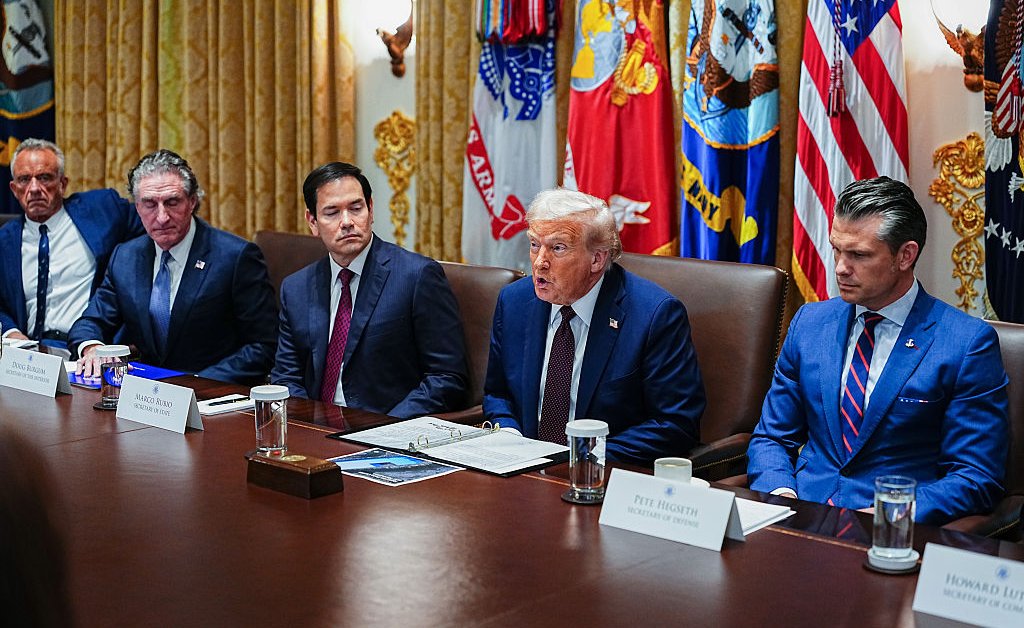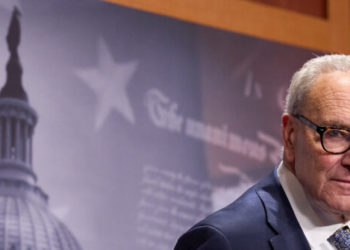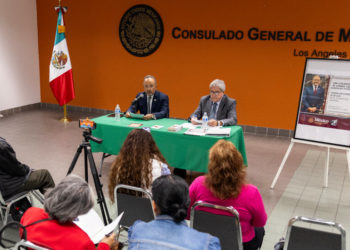President Donald Trump said Tuesday that his Administration will move to reinstate the death penalty in all murder cases in Washington, D.C., his latest effort to crack down on crime and exert more federal control over the nation’s capital.
“If somebody kills somebody in the capital, Washington, D.C., we’re going to be seeking the death penalty,” Trump said during a Cabinet meeting at the White House, describing capital punishment as “a very strong preventative.” He added that while states “are going to have to make their own decision,” prosecutors in D.C. would seek the death penalty. “We have no choice,” he said.
The announcement came without detailed guidance on how it would be carried out. The last execution in the District of Columbia took place in 1957. Most homicides in Washington, D.C. are charged under the local criminal code and tried in D.C. Superior Court, where capital punishment is not authorized. The District’s elected leaders abolished the death penalty in 1981, and residents rejected restoring it in a 1992 referendum by a wide margin.
But the nation’s capital is unique in that the U.S. attorney’s office in D.C. prosecutes both local and federal crimes and can, in certain cases, bring federal charges that carry the possibility of death.
Trump’s remarks underscored how his Administration has been expanding its reach over public safety in the nation’s capital since early August, when he took control over the Metropolitan Police Department and deployed National Guard troops to patrol city streets. City data show overall crime in D.C. is down 8% over the past year, including a 15% decline in homicides, which are down from a 20-year high of 274 in 2023 to 102 so far this year. The White House has disputed those figures, and the Justice Department has opened an inquiry into whether the district’s crime data has been manipulated to appear lower.
Any broad push for capital punishment in Washington, D.C. would rely heavily on federal charging decisions. Under long-standing Justice Department practice, the decision to pursue a death sentence must be approved by the attorney general following a review by the department’s Capital Case Section.
Attorney General Pam Bondi, seated across from the President at Tuesday’s Cabinet meeting, would ultimately decide whether federal prosecutors may seek death in a given case. If she authorizes it, the U.S. attorney for the District must file formal notice in court. Bondi has previously approved capital charges in a New York case involving the killing of UnitedHealthcare’s chief executive Brian Thompson.
Jeanine Pirro, the U.S. attorney in Washington, D.C., has said in recent weeks that Justice Department officials are weighing capital charges in multiple pending matters. That includes the case of Elias Rodriguez, accused of fatally shooting two Israeli Embassy staff members as they left a Jewish community event in May. Prosecutors have also told the federal court that the department is considering seeking capital punishment in a long-running gang case involving two Mexican nationals charged in 2008 who were recently brought to the United States, and in a 2023 carjacking case involving two young men.
History suggests the path Trump outlined would be difficult to navigate. Juries in D.C. have proved reluctant to impose death sentences even in extraordinarily violent cases. In 2003, the city’s most recent death penalty trial, federal prosecutors sought capital punishment for Rodney Moore, convicted in 10 slayings, and Kevin Gray, convicted in 19. After an eight-month trial, jurors could not unanimously agree to death, court records show, and both men received life terms instead.
Trump has long advocated for broader use of capital punishment. On his first day back in office, he signed an executive order that pressed the attorney general to pursue the death penalty “for all crimes of a severity demanding its use” and encouraged state prosecutors to adopt death-penalty policies. More recently, he has vowed to restore federal executions and to expand capital eligibility nationwide.
In his final weeks in office, President Joe Biden commuted 37 federal death sentences, leaving just three inmates on federal death row.
Public opinion on the death penalty has shifted substantially over the past several decades. A Gallup survey found that 53% of Americans in 2024 supported capital punishment in murder cases, down from 80% in 1994.
The post Trump Wants Death Penalty For All Murder Cases in D.C., Which Last Executed Someone in 1957 appeared first on TIME.




